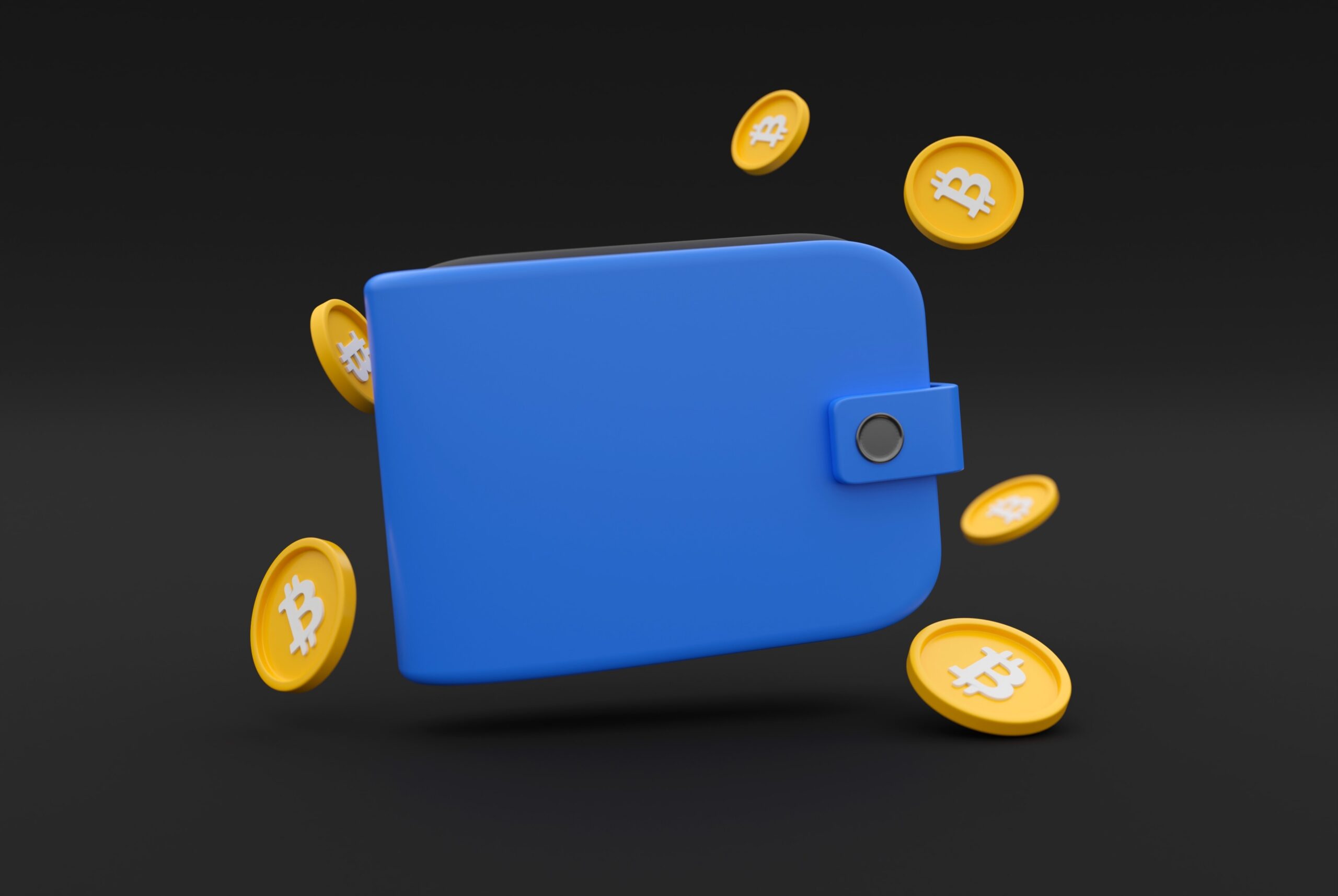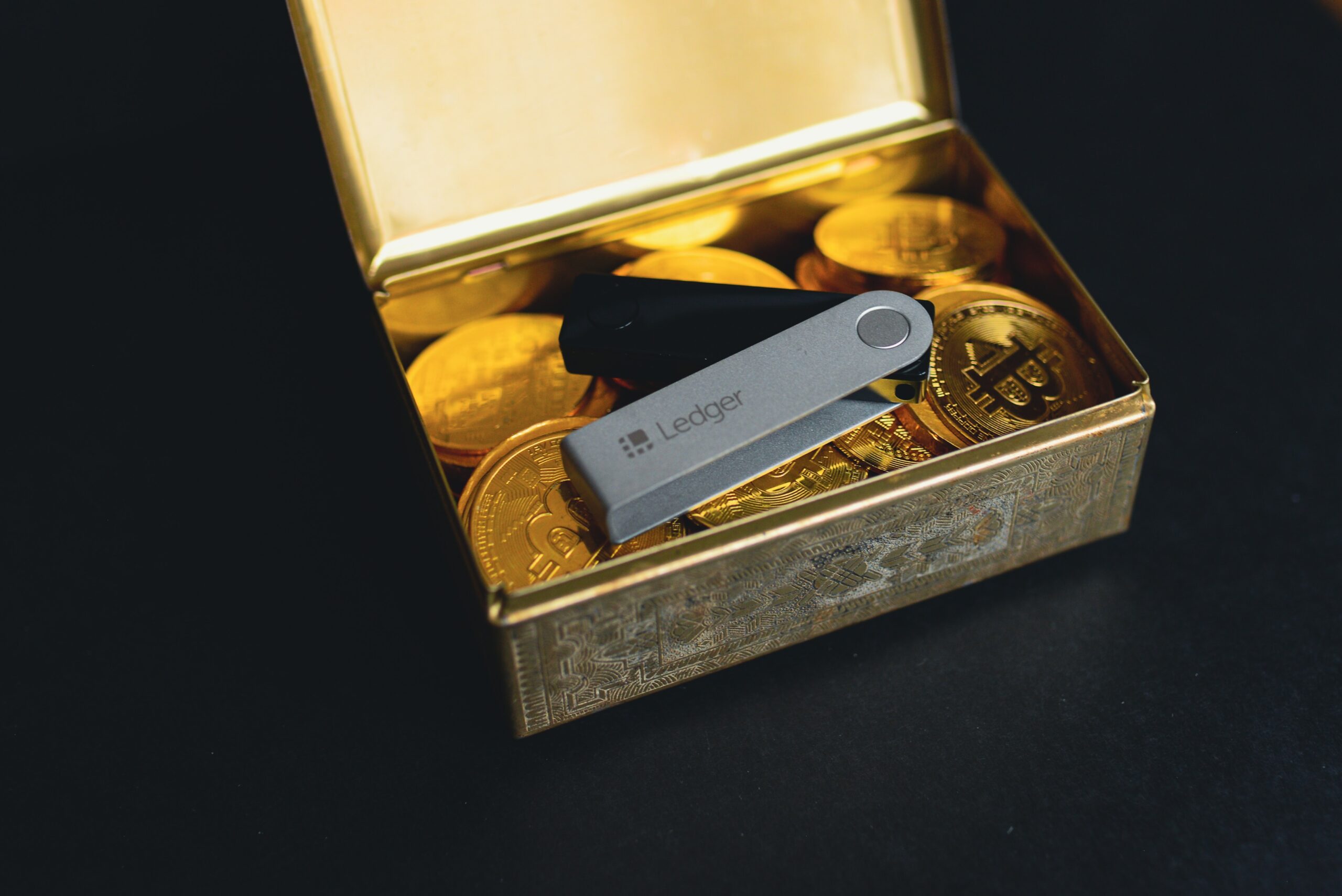
People who want to store their crypto have two broad options. The first option is to create an account on an exchange and keep their crypto there. This is called an exchange wallet. The second option is to download an app and own custody of their crypto themselves.
Both options have their advantages and their disadvantages. Some people prefer exchanges, while others prefer app wallets that guarantee self-custody. But the real question is, which one should you go for?
Sponsored
We’ll thoroughly explain each option, how to use them, and which one you should go for.
What is an Exchange Wallet?

Centralized crypto exchanges are like banks, and exchange wallets are bank accounts. These centralized exchanges are crypto addresses that keep crypto for users in custody or trust.
Exchange wallets usually allow users to easily convert their fiat to cryptocurrency.
Sponsored
Exchange wallets also act as a platform for users to sell and buy cryptocurrencies with relative ease and security. These wallets provide a relatively stable price for these cryptocurrencies, which could be difficult without them.
For example, if one wanted to sell Bitcoin and didn’t have access to an exchange, one would need to find another person who wanted to buy that amount of Bitcoin themselves.
One would also have to post an advertisement for the amount of Bitcoin they wanted to sell and may have to spend a lot of time negotiating a favorable price for the Bitcoin. That’s a rather complicated process, and centralized exchanges automatically streamline it by matching users with buyers.
In essence, the exchange wallet simultaneously acts as a market and a wallet. Exchange wallets are usually secured by a run-of-the-mill password, like all such bank accounts. Some exchanges, like Binance, often provide two-factor authentication as an extra layer of security.
But again, these are all security measures that motivated and crafty criminals could theoretically bypass.
Why You Should Get an Exchange Wallet
Exchange wallets offer an extra layer of security for users. Users who use these exchanges entrust their coins to centralized authorities, which can be held liable if coins are stolen.
Secondly, centralized exchange wallets are quite user-friendly. The app interface of these wallets is usually beginner friendly and often has the same format as traditional financial tools.
Another benefit of exchange wallets is that users can use them for margin trading. Users can borrow money from the exchange to carry out these trades and earn more. However, users can also suffer losses while trading in this manner.
What Could Go Wrong With an Exchange Wallet?
Exchanges are not impervious to hacks or corruption. An exchange could be hacked, and dishonest exchanges can also be careless with user funds.
What Is An App Wallet

An app wallet can also be referred to as a crypto wallet. The wallet is an application that allows people to store their coins in personal custody.
Crypto wallets are protected by private keys. That is a series of codes that provide access to the wallet. These codes are usually quite long and could be complex, so one must find a way to keep them physically safe.
These codes allow users to sign transactions and authenticate those transactions on the blockchain. If mischievous actors get hold of those codes, they could use them to steal one’s crypto.
Some believe that these app wallets are what stores the crypto. But that’s not true. These wallets are merely a tool to interact with the blockchain and enable it to send and receive crypto at certain addresses.
There are two types of crypto wallets. There are cold wallets and hot wallets. Hot wallets are wallets that are connected to the internet. These sorts of wallets comprise app wallets that can be accessed on mobile, desktop applications, or the internet.
Cold wallets consist of hardware wallets that don’t require an internet connection. As their name implies, these wallets are usually hardware — that is, USB devices. However, they are USB devices with OLED screens and side buttons. They are battery-less devices and can be connected to the internet.
Why You Should Get An App Wallet
App wallets may not outsource the security of users, but they make it easier to take responsibility for one’s security. People who use app wallets are responsible for their security, which means their security can be as tight as they want.
People who use app wallets don’t need to worry about the app’s integrity as it doesn’t have control over user funds. However, this isn’t the case for centralized exchanges.
Certain crypto wallets are quite easy to use as well. Most of them don’t have a steep learning curve, and most people can figure their way around it within minutes.
What Could Go Wrong With An App Wallet?
Users who cannot handle the responsibility of keeping their private keys safe could get hacked. They are better served by outsourcing to a centralized exchange.
Exchange Wallet Vs. App Wallet: Similarities Between an Exchange Wallet and An App Wallet
Exchange wallets and app wallets are similar because they are both used to store cryptocurrency.
Another similarity is that they require some sort of code for users to access. For example, exchange wallets usually require a password or face/touch verification, while app wallets require private keys. They both perform the same function.
Exchange Wallet Vs. App Wallet: Differences Between an Exchange Wallet and an App Wallet
The first difference between both wallets is the level of control users have over their crypto. For exchange wallets, users only have access to their crypto, and the Institutions in the custody of the crypto can remove that access.
For example, Binance, an exchange, can block specific users from withdrawing from Binance if it suspects fraudulent activity. That’s not true for app wallets. Users not only have unlimited access to their crypto, they also have unlimited control over it.
Another difference between an exchange wallet and an app wallet is that an exchange provides more features. Customers can easily buy and sell cryptocurrencies through an exchange wallet, while people with crypto wallets cannot. Their wallets only exist to keep their coins safe. They can do nothing else.
Which One Should You Go For?
If you want to store cryptocurrencies, your choice of storage will largely be determined by what you want to use the coins for.
If users want to hold long-term, crypto wallets are probably the safer option. They are usually safer if one is not using the wallet often, and it’s difficult to hack them if they aren’t being accessed regularly.
People who want to trade with their crypto should consider getting an exchange wallet. It makes it easier for them to complete such trades, and most centralized exchanges are reliable.
However, storing the bulk of one’s crypto in an app wallet is better for maximum safety. People who want to trade with crypto can always move their crypto from an app wallet to an exchange wallet to complete the trade.
The reason why it’s safer to keep one’s funds in an app wallet because exchange wallets can be catastrophically unreliable. Over the last ten years, there have been huge exchange blowups in crypto that have jeopardized the ecosystem’s future. The most recent blowup is that of FTX. Every retailer that had FTX exchange wallets lost their funds when FTX declared bankruptcy.
That cannot happen to a crypto app wallet because it doesn’t have the user’s private keys. This also means that the app cannot control or spend users’ crypto, even if it wants to.
Examples Of Exchange Wallets
- Binance
- Coinbase
- Kraken
- Gemini
Examples Of App Wallets
- Metamask
- Trust Wallet
- MyEther Wallet
- Coinomi
- BRD
- Exodus
On the Flipside
- Cold wallets are probably the safest options for people looking to optimize the safety of their assets.
Why You Should Care
The question of how people should store their cryptocurrency has caused debate in the crypto community. Many believe storing crypto on exchange wallets is a fool’s game, and others believe these exchanges are safe. People who want to store their coins in either wallet need to know what they work for and the risks involved in either choice.
